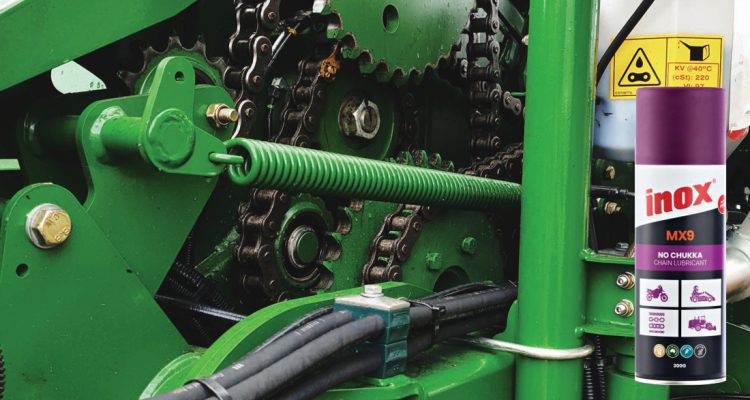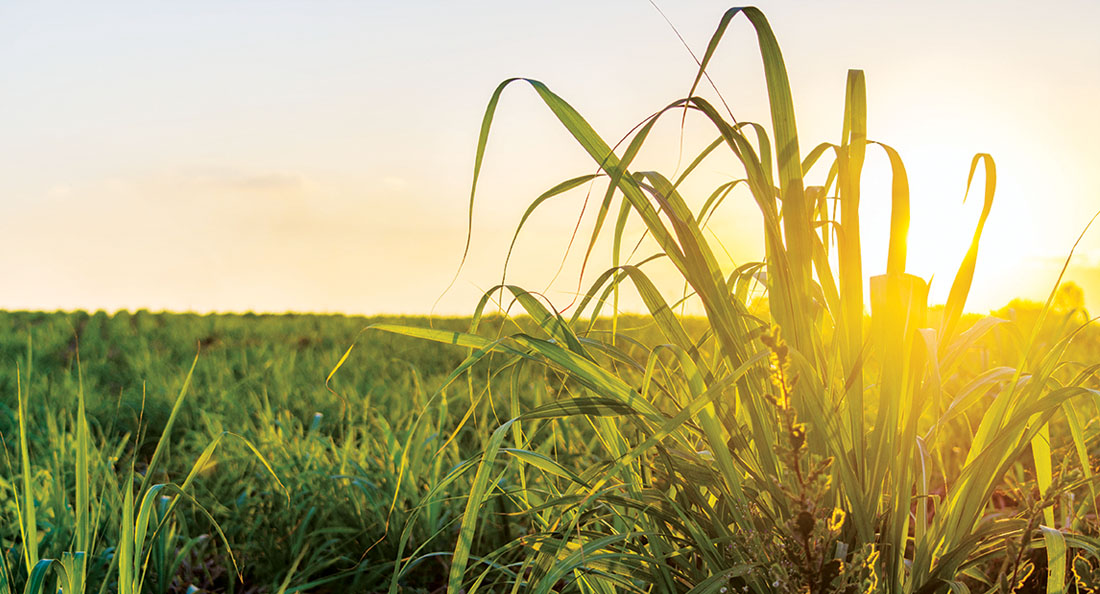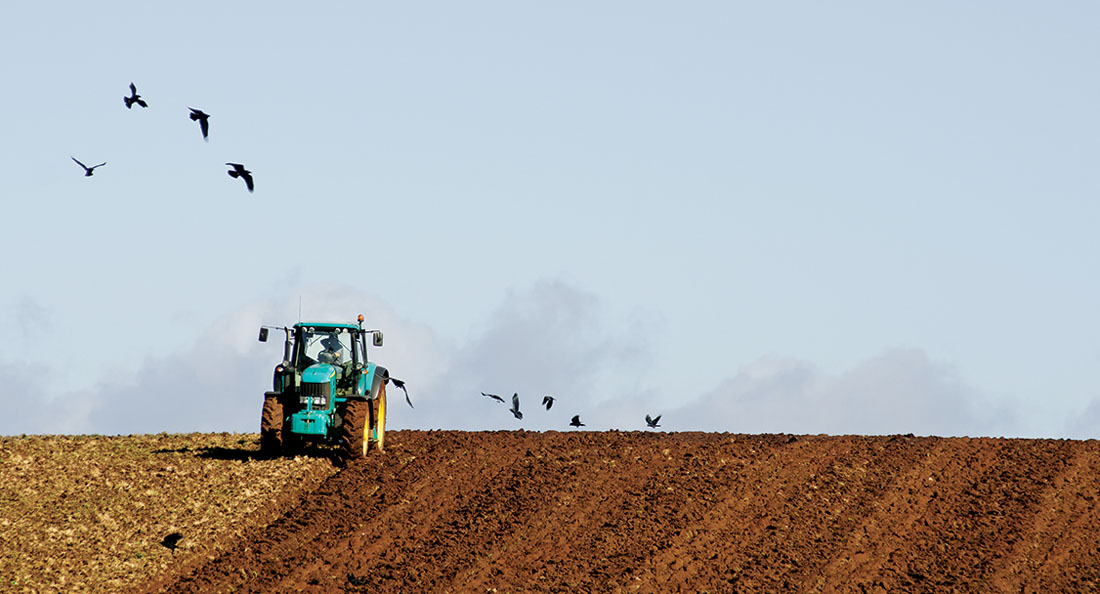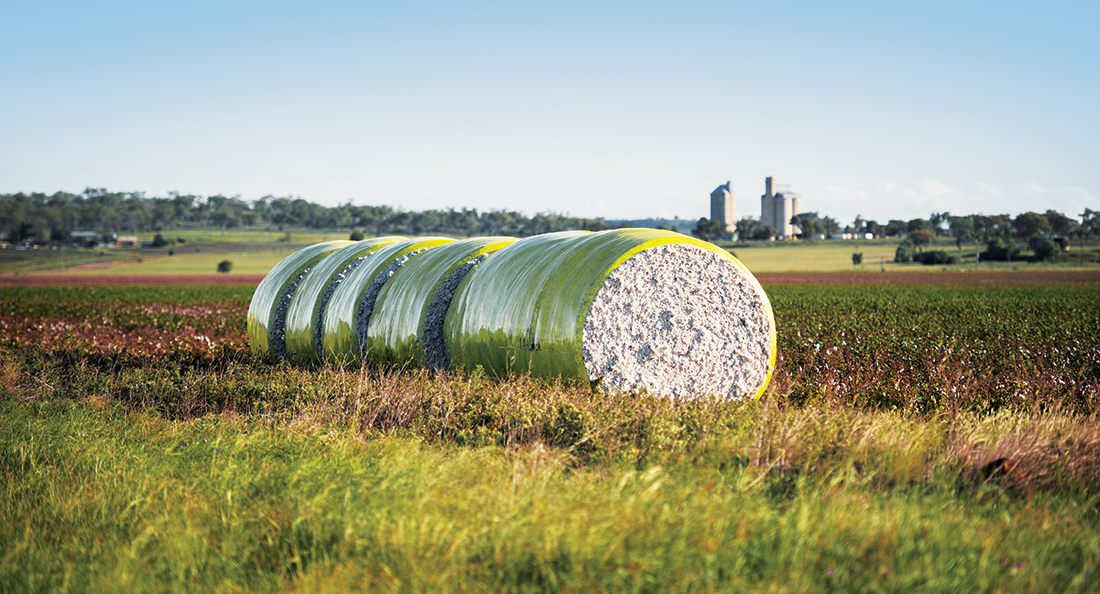In line with recent innovations in the field of lubrication, aerosols and adhesive technology, most modern harvester machines contain a self-oiling reservoir or a self-greasing board for providing an ongoing source of lubrication.
However, according to Angela Chardon, the Managing Director at Candan Industries – who produce the popular INOX lubricants – many farmers still prefer a ‘hands on’ approach’ to their machine maintenance and often use machines that require manual lubrication.
Candan’s premium grade product, the INOX MX9 No-Chukka Chain Lube, has been a best-seller at BSC since its introduction to the market in 2007.
“We tested it numerous times with different oil viscosities to get the right balance. It contains the extreme pressure friction modifier PTFE (Polytetrafluoroethylene) for slick performance and special tackifiers to bond to the chain,” explains Angela. “These properties give it increased lubrication for reduction in the wear of the chain and helps in reducing operating temperatures.”
On a farm, there are always a few machines that use chains for hoisting, hauling, conveying, or driving a motor. The combine harvester is one such machine. A combine is used for harvesting crops such as oats, wheat, barley, rye, corn, sunflower, linseed, canola, and soybeans.
The machine is used to collect seeds or edible parts which are placed at the top of the grains, while inedible or damaged parts are discarded behind into the field. The large link chains require lubrication to operate the rotary elements of the harvesting and threshing units.
A combine harvester also aids in the placement and storing of the harvested crops. The processes performed by a combine harvester include multiple activities such as cutting, hauling, and moving crops to a threshing location.
The INOX-MX9 No-Chukka Chain Lube lubricates the combine harvester chains by allowing for high-speed operations where there will be extreme pressure on the chain. It achieves this by employing tackifiers, coagulants, anti-corrosion, and water proofing compounds to form a lasting relationship with the chain.
The lube also sprays on like an oil to allow penetration between the pin and roller on chain. It then stays on to become tacky, serving as an ongoing lubricant. The MX9 is resistant to salt, chemicals, power washing and the dry and dusty conditions on a farm.
“MX9 can provide lubrication which gets into the link and prevents locking up. Because it resists flick off, there is nothing on the chain guard to attract dirt and crop residue under farming conditions,” says Angela.
Another machine which uses chains is the baler. Hay balers often have up to six chains per machine, all large links, that appear like an oversized bike chain. Particularly during the harvest season when time is short, any neglect in maintenance can lead to the hay baler chains getting locked up.
“MX9 offers a quick and simple way of lubricating the many chains on a baler. Although most modern machines are self-oiling, we frequently hear from farmers who prefer to lubricate their chain as a form of preventative maintenance,” says Angela. “Interval lubricating like this can reduce the service downtime on a machine that is being used daily during harvest.”
The MX9 can accommodate high pressure and variable temperatures, similar to its sibling product MX8, an extreme pressure grease with PTFE that is used on a multitude of farming equipment. However, the MX9 has a thinner viscosity, which often is preferred when lubricating links and chains.
The flick resistant properties, combined with polytetrafluoroethylene and special tackifiers, ensure the lubricant delivers quality protection within the pins structure, under extreme pressure and friction.
“The convenience of the MX9 product comes down to its ease of application as an aerosol. In addition to the fact that it just works, without leaving a mess behind, or debris stuck in the machine,” concludes Angela.




